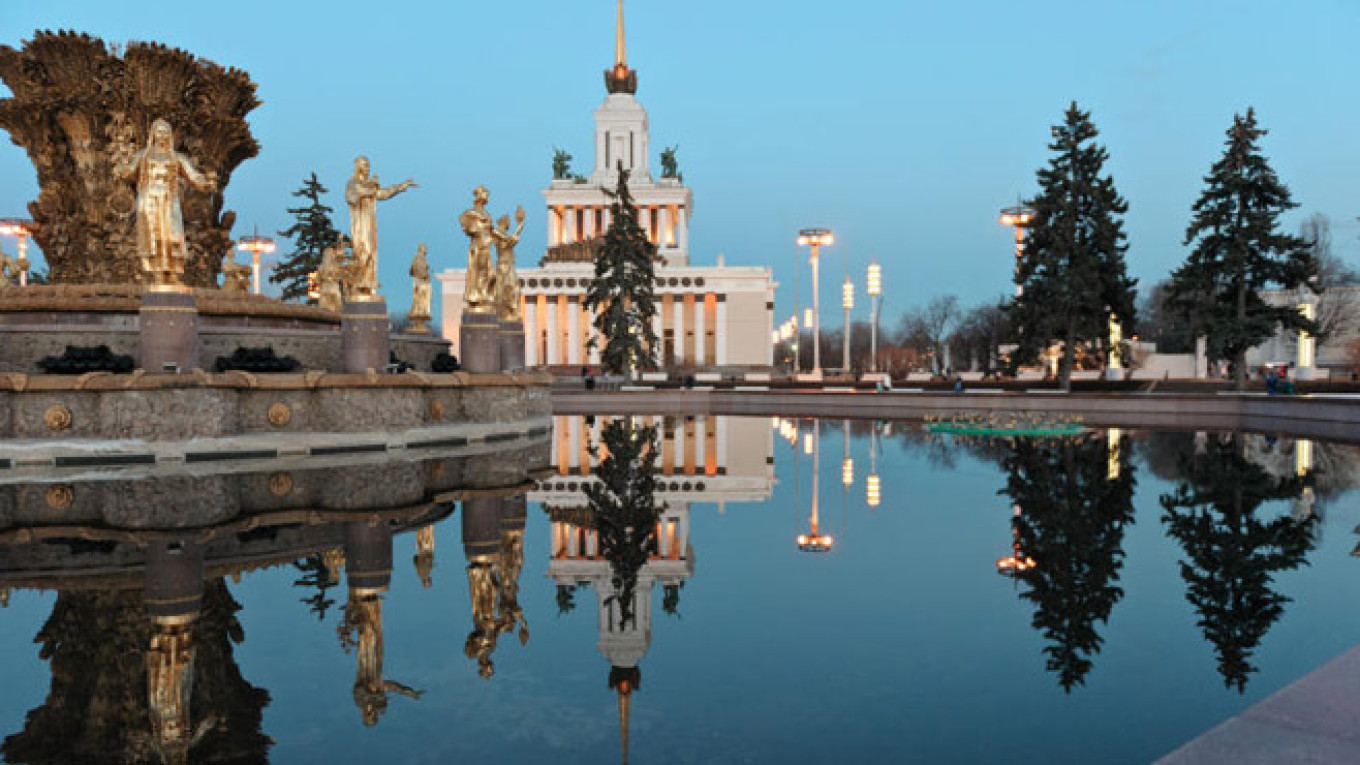A Stalinist complex built in the 1930s on a swamp on the outskirts of Moscow to champion the achievements of communism will soon receive a new heritage designation that critics fear will legalize buildings erected without proper designation and will pave the way for new construction work.
The Culture Ministry has issued an order to redesignate Moscow's VDNKh as a "tourist zone," the complex's press service said in a statement. The order is likely to be implemented after a period of public discussion that is scheduled to last until May 6.
VDNKh, formerly known as the All-Russian Exhibition Center, or VVTs, is being transformed as part of a redevelopment project under the personal supervision of Moscow Mayor Sergei Sobyanin.
Ongoing changes to VDNKh have provoked the ire of preservationists who accuse developers of looking to drastically alter aspects of the 1930s complex that has been dubbed a "Soviet Versailles."
"All the new regulations legalize buildings that have appeared in the last three to four years," said Konstantin Mikhailov, the head of architectural preservation group Arkhnadzor.
"And it does not protect VDNKh from new buildings … there are big opportunities for construction."
The order from the Culture Ministry initiating the change in designation was welcomed by VDNKh, which said that it would allow for a better coordinated approach to development, and will allow some buildings, including an Oceanarium, that were reportedly constructed illegally, to be officially opened and put to use.
"The new status will allow the exhibition to develop as the country's major cultural and recreational complex," VDNKh said in a statement.
The city of Moscow in conjunction with private investors could spend up to 163 billion rubles ($3.2 billion) on developing VDNKh through 2020, the Vedomosti business newspaper reported last week.
Aside from some superficial repairs, VDNKh has enjoyed little investment since the collapse of communism, and in the 1990s its 70 pavilions were colonized by petty traders.
Redevelopment projects at the site have been repeatedly derailed in the last decade because of the huge sums of money required. But this time the project appears to be more serious and reconstruction work is already under way.
Contact the author at h.amos@imedia.ru
A Message from The Moscow Times:
Dear readers,
We are facing unprecedented challenges. Russia's Prosecutor General's Office has designated The Moscow Times as an "undesirable" organization, criminalizing our work and putting our staff at risk of prosecution. This follows our earlier unjust labeling as a "foreign agent."
These actions are direct attempts to silence independent journalism in Russia. The authorities claim our work "discredits the decisions of the Russian leadership." We see things differently: we strive to provide accurate, unbiased reporting on Russia.
We, the journalists of The Moscow Times, refuse to be silenced. But to continue our work, we need your help.
Your support, no matter how small, makes a world of difference. If you can, please support us monthly starting from just $2. It's quick to set up, and every contribution makes a significant impact.
By supporting The Moscow Times, you're defending open, independent journalism in the face of repression. Thank you for standing with us.
Remind me later.


